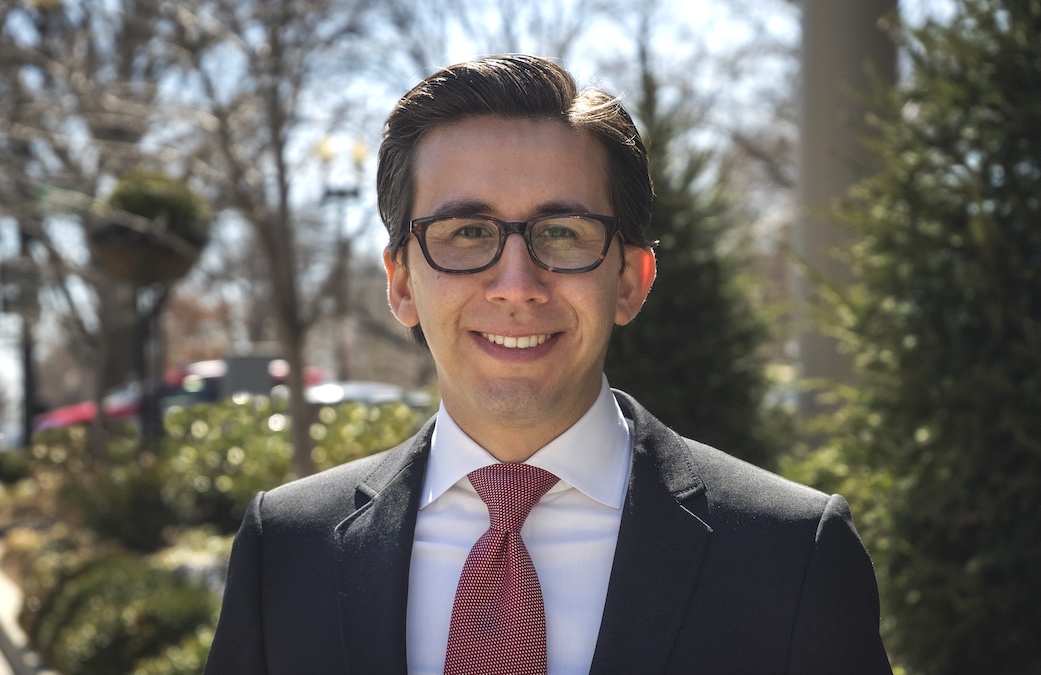The media has been awash with grand stories about the metaverse’s potential in diverse sectors. Those stories have sparked some skepticism about the ability to convert that potential into tangible benefits.
However, there are clear indications the market grew substantially last year, and is expected to rise even more sharply this year. This is especially because the metaverse offers the opportunity to deliver services more cost-effectively than through other technology platforms.
Thomas Sanchez, the CEO of DC-based digital consulting firm Social Driver, noted that Meta (formerly Facebook) and Microsoft spent $10 billion and $68 billion, respectively, on the metaverse last year.
“So much business will be conducted, and so many services will be built, on this platform,” Sanchez said to Technical.ly, adding, “Few businesses will not be on this platform in the future.”
Given these trends, Sanchez sees major opportunities for DC and surrounding jurisdictions to harness the metaverse in service of generating economic growth. He also sees a chance to better provide key services to citizens — particularly underserved ones — and afford them greater metaverse access. To accomplish that, he proposes the creation of a “District of Metaverse,” a regional entity in the DC metropolitan area that he suggested “would advise government and the public on policy issues relating to the metaverse.”
Administration, jurisdiction and impact
Sanchez envisions this district as administered by an advisory council, which would be housed at three universities — one in the district and one in each of the bordering states. It would then issue white papers and other policy advisories on how they best can use the metaverse.
The concept, while novel to DC, is not without precedent: Seoul, the capital of South Korea, may finalize its own metaverse plan by 2026. But that’s just for one city, not a whole metropolitan area. One of Sanchez’s prime reasons for a regional approach beyond DC is that the metaverse’s implications go beyond municipal boundaries.
Sanchez believes the metaverse would offer special opportunities in such key industries as cybersecurity, hospitality, education and life sciences. For instance, the council could train teachers on how to employ the metaverse as a teaching tool, facilitate tourism experiences or offer cyber companies the chance to create new identities. He also predicts that the District of Metaverse could spur startups to move here while broadening their reach to younger audiences.
The “District of Metaverse” concept was partly inspired by Sanchez’s work as a member of DC’s Innovation & Technology Inclusion Council (ITIC), as well as with his company’s own clients. Social Driver, which boasts 50 employees, is currently working on a metaverse project for an undisclosed auto company, as well as another creating a “virtual dentistry portal” for a healthcare company.
Feedback and feasibility
Ben Verdi, a global innovation manager for Grant Thornton International, sees Sanchez’s concept as totally viable.
“I wouldn’t be surprised to see tech hubs in the DC area incentivizing the development of metaverse services and businesses in the future,” he said. “The question is: How do local governments structure incentives and programs to enable businesses — especially small businesses — to reach their goals in the metaverse?
Lindsey Parker, DC’s CTO, wouldn’t comment specifically about the concept. She instead emphasized that her office is focused on the infrastructural changes underpinning such engagement.
“We are really intrigued by what state and local governments are doing with this technology,” she explained. “But for now, Mayor Bowser is focused on the digital experiences of our users today, and is investing $12.6 million in the people and technology to make our government simpler, fairer, and faster.”
It’s not difficult to envision the metaverse becoming a significant tool for local governments in the DC area, especially considering the special opportunities the platform could open up for diverse businesses in the area, and the opportunity to leverage an existing technology infrastructure in many parts of the DC metropolitan area. However, it may take a somewhat longer time for diverse creative, business, policy, and technological elements to come together in order for robust metaverse platforms to be fully launched by local governments.
Before you go...
Please consider supporting Technical.ly to keep our independent journalism strong. Unlike most business-focused media outlets, we don’t have a paywall. Instead, we count on your personal and organizational support.
Join our growing Slack community
Join 5,000 tech professionals and entrepreneurs in our community Slack today!

The person charged in the UnitedHealthcare CEO shooting had a ton of tech connections

From rejection to innovation: How I built a tool to beat AI hiring algorithms at their own game

The looming TikTok ban doesn’t strike financial fear into the hearts of creators — it’s community they’re worried about


